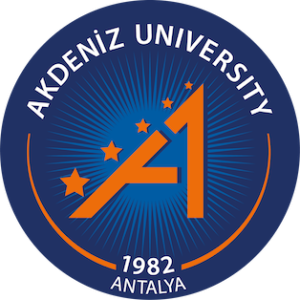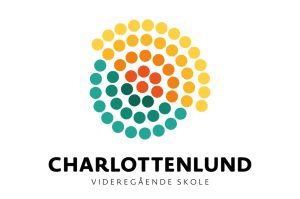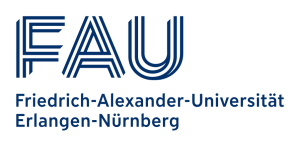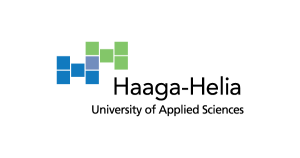.png)
|
|
Norwegian University of Science and Technology NTNU creates knowledge for a better world and solutions that can change everyday life. It is a university with an international focus, with headquarters in Trondheim and campuses in Ålesund and Gjøvik. NTNU has a main profile in science and technology, a variety of programmes of professional study, and great academic breadth that also includes the humanities, social sciences, economics, medicine, health sciences, educational science, architecture, entrepreneurship, art disciplines and artistic activities. The teacher education department offers education for primary and lower secondary school teachers as well as five-year integrated master programmes for teaching the natural sciences, social sciences, history, geography, language and sports. It also offers science specialisations for primary and lower secondary school teachers. NTNU is committed to innovative education, especially increased use of learning methods with active student involvement and digitalization. |
|
Akdeniz University, (Antalya, Turkey) was founded in 1982 and incorporates a number of higher education institutions in the West Mediterranean region of Turkey. Its mission is to provide education and scientific production at a universal level through high quality academic programmes, contributing to transformation of information to technology, meeting the needs of society at the highest level in the fields of knowledge and technology as well as artistic, social, cultural and other areas. The vision of Akdeniz University is to become a distinguished university which continuously enhances the quality of its work in the fields of research, education, art and technology; which is sensitive to the environment; which is entrepreneurial, and which is recognized internationally for its scientific work. Akdeniz University has played a significant role which provides added value to the entire country from a starting point in the West Mediterranean region by implementing important activities of vital importance in the fields of education, research and development, and in the services it provides to society. Akdeniz University has put its signature on a list of outstanding successes in the fields of health, science, social development, education, language and arts at both the national and international level. Akdeniz University has about 84,000 students and 2,700 members of the academic staff. The main campus of our university is located between Dumlupınar Boulevard and the Uncalı district. The main campus has an area of 3,483,589m2, which includes 615,105m2 of built up area. The campuses have a total indoor area 681,598m2. Akdeniz University continues its various activities in the fields of education, research and service to society in 24 Faculties, 7 Institutes, 1 School, 1 Conservatory, 12 Vocational Schools and 54 Research and Application Centres. |
|
|
|
Charlottenlund Upper Secondary School (Norwegian: Charlottenlund videregående skole) is the largest upper secondary school in the Jakobsli area of Trondheim, county of Trondelag in Norway. It is located about 4 km east of Trondheim city centre. The school has approximately 1,300 students, 250 employees and the current headmaster is Marit Flak Stovner. The school was originally formed in 1970 as Brundalen Upper Secondary School, but the history of the school can be traced back as far as 1883. In 2002, Brunsdalen Upper Secondary School was merged with Charlottenlund Upper Secondary School, which initially retained the name Brunsdalen Upper Secondary School. The school subsequently changed its name to Charlottenlund Upper Secondary School in 2010.In 2012, the school moved into a new building near the old school (built 2011). The old school was demolished soon after. In school, students can choose from: Study Specialisation, Music, Dance and Drama, Media and Communication, Art, Design and Architecture, Buildings and Building Technology, Hair, Interior and Flower Design, Information Technology and Media Production, Sales, Service and Travel, and Technology and Industrial arts. |
|
University of Erlangen–Nuremberg (German: Friedrich-Alexander-Universität Erlangen-Nürnberg, FAU) is a public research university in the cities of Erlangen and Nuremberg in Bavaria, Germany. The name Friedrich–Alexander comes from the university's first founder Friedrich, Margrave of Brandenburg-Bayreuth, and its benefactor Alexander, Margrave of Brandenburg-Ansbach. FAU is the second largest state university in the state of Bavaria. It has 5 faculties, 24 departments/schools, 25 clinical departments, 21 autonomous departments, 579 professors, 3,457 members of research staff and roughly 14,300 employees. In winter semester 2018/19 around 38,771 students (including 5,096 foreign students) enrolled in the university in 265 fields of study, with about 2/3 studying at the Erlangen campus and the remaining 1/3 at the Nuremberg campus. These statistics put FAU in the list of top 10 largest universities in Germany. In 2018, 7,390 students graduated from the university and 840 doctorates and 55 post-doctoral theses were registered. Moreover, FAU received 201 million Euro (2018) external funding in the same year, making it one of the strongest third-party funded universities in Germany. |
|
|
|
Haaga-Helia University of Applied Sciences (Finnish: Haaga-Helia ammattikorkeakoulu, Swedish: Haaga-Helia yrkeshögskola) is one of Finland's largest universities of applied sciences ("ammattikorkeakoulu" in Finnish). The institution is fully supervised and accredited by the Finnish government through the Ministry of Education and Culture. The university's primary facilities are in Pasila, Helsinki. It has other premises in Haaga, Malmi (all in Helsinki), and in Porvoo and Vierumäki. Haaga-Helia offers Bachelor and Master level courses in business, information technology, sport and leisure education, hospitality, tourism and event management, journalism, and vocational teacher education. It has about 11,000 students, of whom 1,000 are international students, and about 650 employees, of whom nearly 400 are full-time teachers. In the field of business, Haaga-Helia is the largest educator in the Nordic countries. Haaga-Helia's Student Union that takes care of student advocacy and social and study-related interests is called Helga. Haaga-Helia offers 27 degree programmes of which 16 lead towards Bachelor degree and 11 towards Master degree. 12 degree programmes are conducted fully in English. |
Son güncelleme : 30.06.2024 02:07:36





